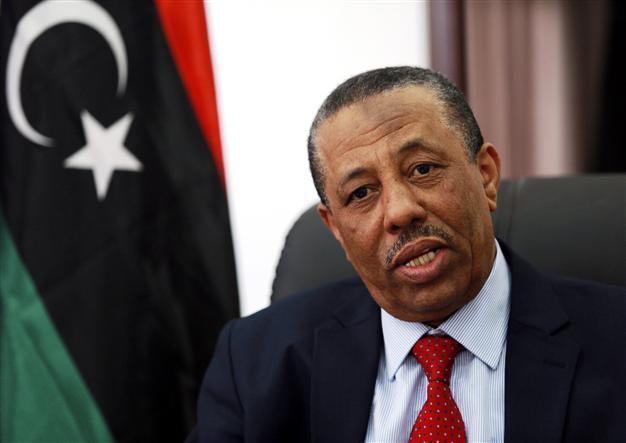Turkey slams remarks by Libyan interim government PM
ANKARA

REUTERS Photo
Ankara has called on the transitional government in Libya to “review its irresponsible attitude and avoid hostile and baseless statements” against Turkey.Turkey will be forced take “necessary measures” if this attitude does not change, Foreign Ministry Spokesperson Tanju Bilgiç said in a written statement on Feb. 19, replying to recent remarks by Abdullah al-Thinni, the prime minister of the Libyan interim government.
“We expect interim government officials to review their irresponsible attitude and avoid hostile and baseless statements against our country. Unless they change their attitude, we will have to take the necessary measures,” he said.
Al-Thinni, in an interview to El-Şark El-Evsat on Feb. 18, accused Turkey of interfering in the domestic affairs of Libya and warned that the government could put an end to investments by Turkish companies in the country.
Bilgiç also recalled a Libyan military official’s accusation against Turkey of supporting terrorists in Libya. He said these statements did not reflect the “brotherly Libyan people’s friendship and gratitude” to Turkey and it is “doubtful that these remarks are sourced from Libya.”
The North African country is in chaos as two rival governments and parliaments allied to separate armed factions fight for territory, four years after NATO war planes helped topple dictator Muammar Gaddafi.
Al-Thinni, the internationally recognized premier, has been based in the east of the country since an armed group called Libya Dawn seized the capital in August. Libyan Dawn includes Islamists but denies that it has links to al-Qaeda or to fighters that have sworn allegiance to Islamic State.
Turkey has long had strong links with oil-rich Libya, but its recent role in Libya has stirred ill-feeling in recent months.
The Turkish special representative to Libya became the first envoy publicly to meet with the internationally unrecognized authorities in Tripoli last year, prompting accusations that Ankara is pursuing an Islamist-leaning foreign agenda which has already seen it alienate numerous former allies in the region.
















